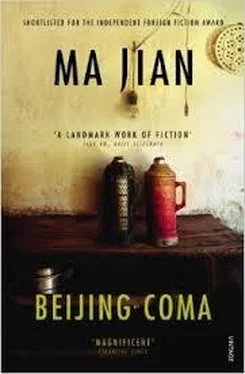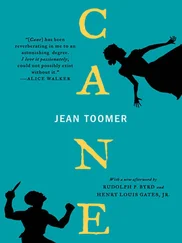She will never know that the postcard with its message written in Cyrillic script was burnt by me.
When I think of that card now, I still feel a glimmer of fear. Three opera company singers in red armbands turned up at our room in the dormitory block one evening and ordered my mother to hand over the postcard she received from the Soviet Union. My mother told me to go into the yard, so I didn’t hear what else was said. But I could tell they suspected her of being a spy.
For a few months after that visit, I didn’t dare go outside to play, because as soon as the other kids in the yard saw me, they’d shout, ‘“What’s that book you’re holding?” “It’s a libretto.” “Of what?” “ The Tale of Natasha .”’ They were quoting dialogue from a Russian film that was popular at the time. In that particular scene, a female spy made herself known to a government agent.
It was only when I started going to primary school that I realised my mother couldn’t have been spying for the Soviet Union, because she didn’t speak a word of Russian.
Although my mother’s colleagues didn’t find the postcard, they confiscated other Russian letters they found in the flat. A few years later, I came across a postcard of Moscow’s Red Square while I was flicking through my mother’s journal. When no one was looking, I tossed it into the burning embers of our charcoal stove.
My mother had a distant cousin called Dr Wan. She visited him once seeking treatment for a chest infection, and ended up staying with him for almost a month. She said he prepared herbal medicines for her every day. They wrote to each other a lot after she returned. Perhaps that was another brief romantic episode in her life.
After the day shift of demolition workers clocks off, the sparrow sings for a while, then everything becomes so still that I can hear insects nibbling the mung beans in the kitchen. Although the sound each individual insect makes is tiny, when multiplied by 10,000, it amplifies into a loud munch that rumbles through the air. The insects have very hard shells. My mother skims off the insects that float to the surface when she puts the mung beans in a pan of water, but some drown and sink to the bottom. After their little corpses are poured down my throat along with my mother’s soup, I can feel them stick to the walls of my stomach. They’re harder than the mung beans’ indigestible skins.
The night workers begin their shift, and the noise from the demolition sites that surround us on all sides makes the night air shake.
Since my mother lost enthusiasm for life, her days have become tedious and wretched, which is probably why the postcard has assumed such importance. People only escape into the past when they have nowhere left to go. I’ve had to flee down this backward path for the last ten years.
When dawn breaks, my mother drags a chair out onto the landing, climbs onto it and tries to pull down one of the many objects she’s hung outside the front door. There are bundles of flattened cardboard boxes out there, as well as rusty cigarette tins and the bamboo bicycle seat that my brother used to sit in when he was a child. A cold draught blows in. As she taps the objects, I catch a smell of old dust. It’s more refined than the smells of mouldering onions, human faeces and bird shit that fill this flat.
‘What a cold wind,’ she says, dragging the chair back into the room. Then she picks up a leaflet from the floor. ‘What? They’re turning off the central heating next week? But I’ve paid for the heating until March next year… And what’s this? They’re cutting off the water and electricity too next month? Ha! Those corrupt officials are colluding with the rich businessmen…’
She hasn’t begun to look for a flat for us to move into. All she’s done is collect a few notices advertising rooms to rent. Since she’s still refused to sign the contract, she hasn’t received any compensation money yet. In fact, she read the leaflets about the heating, electricity and water last week, but she’s forgotten all about them.
Two hundred li further north is the Mountain of the Triumphant Horse. A winged horse with a black head and white body stands on its summit. When it sees a human approach, it flies away.
‘Ke Xi is a piece of s-scum!’ I heard Shan Bo say to Bai Ling as I squeezed back into the hunger strike tent. ‘At the critical moment, he plays sick and runs away!’
Bai Ling’s face was blank. Lin Lu was sitting with his legs crossed, smoking a cigarette. Old Fu was having a heated discussion with the rock star Hou Dejian.
I decided against telling Bai Ling that Mou Sen and Nuwa had been shot. I was afraid she’d pass out if she heard the news. But I couldn’t bottle up the pain, so I pulled Old Fu outside and said, ‘Mou Sen’s been hit!’
‘Did you see it happen?’ Old Fu asked, the glowing streaks of the tracer bullets reflected in his eyes.
‘He’s dead. The bullet ripped up half his face. Nuwa was shot too. She’s been taken to hospital. Look at my hands. There was a massacre in the north-east corner! I saw seven or eight people killed up there.’ I looked down at the blood coagulated on my arms. I couldn’t tell which patch of blood belonged to whom.
Old Fu wrung his hands nervously. ‘Don’t let’s broadcast this news yet. We haven’t got any funeral music to hand.’
‘The Workers’ Federation’s Dare-to-Die Squad went to repel the troops in the east. I’m sure most of them have been killed by now.’
‘If my binoculars hadn’t been smashed, I’d be able to see what was going on over there,’ Chen Di said. He’d lost his powerful army torch too.
The sound of gunfire intensified on all sides. The student standing next to me had spent some time in the army. ‘Those shots are from automatic rifles and machine guns,’ he said authoritatively. ‘The troops are firing horizontally into the crowds. Only a few of them are shooting into the air. They must have killed a lot of people by now.’
It felt as though we were standing behind the scenes in a theatre, overhearing the noisy commotion taking place on the stage. The students and civilians listened to the gunfire, clutching their masks, waiting for the soldiers to flood onto the Square. A few couples had wrapped themselves tightly together in blankets and had lain down on the ground to sleep. Friends were helping each other pin their student identity cards to the insides of their pockets. Foreign reporters and press photographers gripped their cameras, but didn’t know where to point them. In the spot where I’d gone to block the armoured personnel carrier, I could see a bus in flames. Thick clouds of smoke swirled up and scattered into the night sky. Several armoured personnel carriers and tanks were now zipping back and forth along Changan Avenue.
My fingers remembered the warmth of Nuwa’s blood. Mou Sen’s blood was already cold by the time I touched it. Were those two people really no longer alive? I still couldn’t accept it. I knew Tian Yi must have arrived at the hospital by now. Even if she’d wanted to return to the Square, she would have had difficulty breaking back through the ring of encirclement. I knew she would live, and that I would perhaps end up dead, like Mou Sen. For a moment, I considered running away, but the thought filled me with shame.
‘Go and fetch Wang Fei,’ Hai Feng said, arriving with Shao Jian and Cao Ming.
‘We’ve just received some inside information that General Secretary Zhao Ziyang wants us to stay here until dawn,’ Cao Ming said. ‘If we stand our ground, the reformers will be able to regain the upper hand. Don’t forget, Zhao Ziyang is Deputy Chairman of the Central Military Commission as well as General Secretary, so he has some control over the army. But we need to give him time to mobilise his troops.’
Читать дальше












